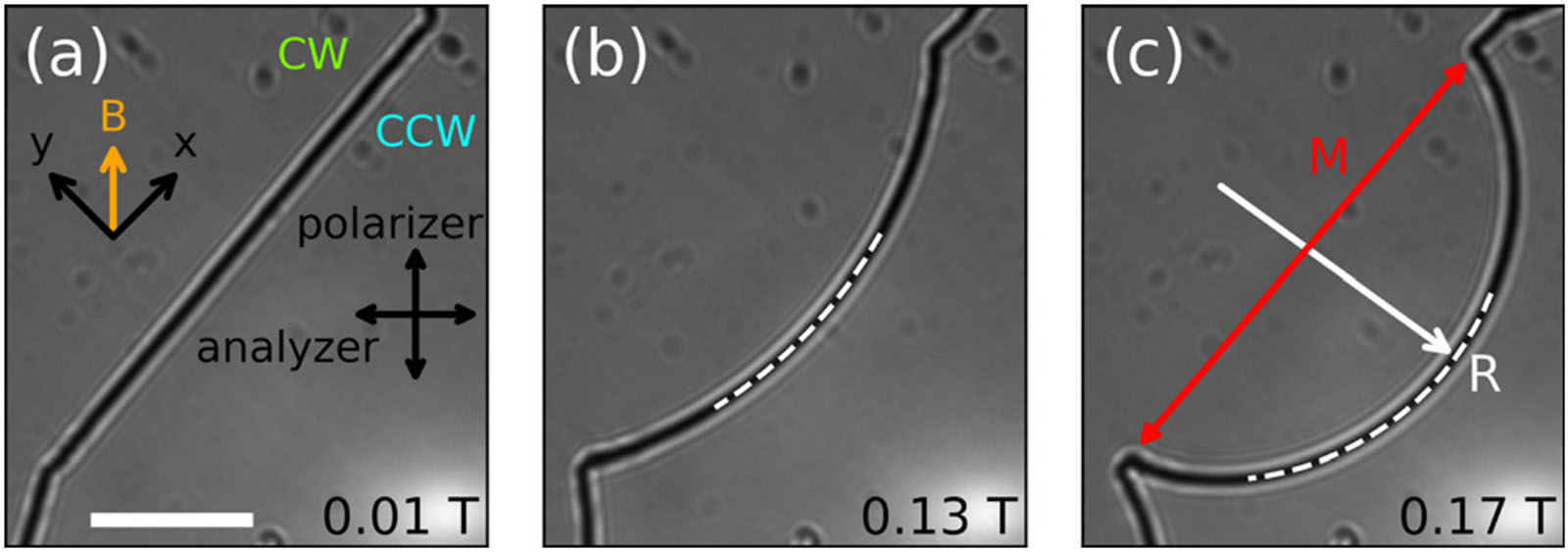Arjun Yodh, Jay Kikkawa, University of Pennsylvania; Peter Collings, Swarthmore

A free disclination imaged between cross polarizers at various strengths of the magnetic field indicated by the labels. Sample cell thickness is 15.9 mm. The dashed arcs are part of the best fit to the disclinations. Only part of the fit is shown for clarity. Scale bar in (a) is 500 mm and is the same for the other two images.
Outcome: Researchers at the University of Pennsylvania and Swarthmore College developed new non-invasive methods to measure the mechanical properties of defects in liquid crystals using magnetic fields and advanced imaging. The study revealed that the line tension of twist disclinations ranges from 75 to 200 piconewtons and increases logarithmically with sample thickness, providing crucial quantitative data for testing theoretical models of these defects.
Impact and Benefits: The work provides fundamental insights into the behavior of topological defects, which could be useful for materials science and potential technologies from displays to soft robotics. The ability to precisely measure and control defects in liquid crystals enables development of programmable soft materials that can respond to external stimuli in controlled, predictable ways.
Explanation: Disclinations are line-shaped defects that arise in liquid crystals and other materials. Using confocal microscopy and magnetic fields, researchers characterized their three-dimensional shape and measured their line tension by deforming their shape. Specifically, the disclinations in twisted liquid crystal cells form curved patterns that bend into circular arcs in strong magnetic fields. By comparing observed disclination contours to theoretical models, the researchers determined the mechanical and morphological properties of single disclinations—crucial information for designing new soft materials with unique responses to external stimuli.
Chen, Y. H., Mandic, M., Slaughter, C. G., Tanaka, M., Kikkawa, J. M., Collings, P. J. and Yodh, A. G., Morphology and line tension of twist disclinations in a nematic liquid crystal. Soft Matter 20 (45), 9050-9059 (2024) 10.1039/d4sm01076k
